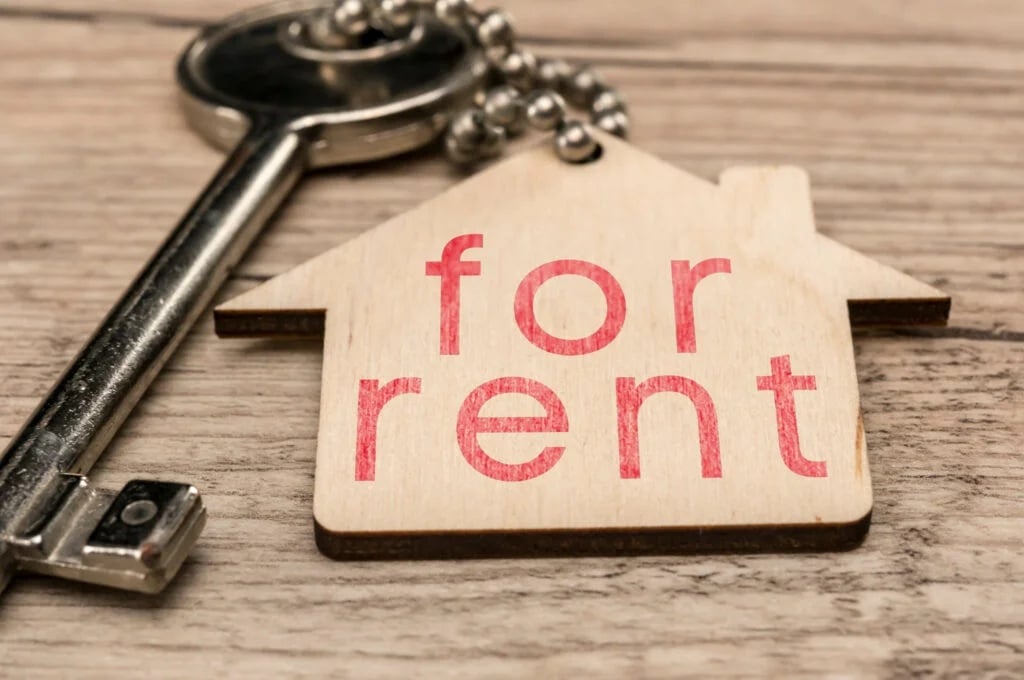Long-Term vs Short-Term Condo Investment Strategies

Marathon or sprint, you’ve probably watched them, or maybe even raced in one yourself! The main difference? Pace.
Real estate investing, especially in pre-construction condos, works a lot the same way. How? It’s all about pace. Some investors prefer the slow and steady approach, renting out a condo for long-term income. Faster gains, flipping or assigning before closing is what many may choose.
Slow and steady wins the race? Or do you have to strike while the iron is hot? Which one? Well, your goals, timeline, & risks you’re comfortable taking are the decisive factors here.
Hi, I’m Gatin Gill, and in this guide, I’ll break down the two main strategies, buy-and-hold rentals and short-term flips or assignments, so you can see which path fits your investment style best.
Read: Pre-Construction Condos 101: A Beginner’s Guide
Long-Term Condo Investment Strategy (Buy-and-Hold Rental)
What is Buy-and-Hold?
Have you ever planted a tree? When you plant one, you watch it grow, right? Buy-and-hold works pretty much the same way. You buy a condo, hang onto it, and after everything is said and done, that is, when the pre-construction condo timeline reaches its final stages and post-closing, you rent it out.
Your reward? Steady rental income over time, and with a bit of luck, the property itself grows in value. A slow-burn strategy: the kind that quietly builds wealth in the background.
Read: The Pre-Construction Condo Timeline Explained
Benefits of Buy-and-Hold
- Stable rental income over time
- Property value growth in the market
- Tax advantages (mortgage interest, property taxes, maintenance costs)
- Long-term wealth building through appreciation
Risks to Keep in Mind
- Market ups and downs affecting rent & value
- Maintenance & repair costs
- Tenant issues: vacancies, late payments, or property damage
- Ongoing effort in property management
Best Suited For
- Investors seeking passive income
- Long-term thinkers building wealth slowly
- Those okay with property management (or hiring someone to do it)

Short-Term Condo Investment Strategy (Flipping/Assignment)
What is Flipping/Assignment?
Short-term condo investing. It means selling before you’ve owned the unit very long. You can flip after the condo is built and registered, or sell the purchase contract during construction ( aka an assignment sale). The idea is simple: buy early, sell sooner, and walk away with a profit if the market is in your favour.
Read: How to Assign Your Pre-Construction Condo Contract
Benefits of Flipping/Assignment
- Potential for quick, high returns
- Lower ongoing costs (no long-term maintenance or tenants)
- Faster access to capital for the next investment
- Flexible exit if market conditions improve quickly
Risks to Watch For
- Market downturns reducing resale value
- Assignment restrictions in developer contracts
- Extra costs: assignment fees, closing costs, legal fees
- Tax treatment often less friendly (profits taxed as business income)
Best Suited For
- Investors with higher risk tolerance
- Those seeking quick returns over steady income
- People who prefer less long-term commitment
Buy and Hold vs Flip Condo Comparison Table
| Aspect | Buy-and-Hold Rental | Flipping/Assignment |
| Time Horizon | 5+ years | 1-4 years (construction period) |
| Income Source | Rental income, appreciation | Capital gains from sale |
| Risk Level | Moderate | High |
| Cash Flow | Steady but slower | High but one-time |
| Management Effort | High (tenant and property management) | Low (no tenants) |
| Tax Implications | Deductible expenses, capital gains | Potential business income tax |
| Market Dependence | Moderate (rental demand, appreciation) | High (resale market conditions) |
| Capital Required | Higher (closing costs, ongoing expenses) | Lower (deposit, assignment fees) |

Considerations for Ontario Investors
No two markets are the same, and Ontario has its own rules of the game. Before choosing a strategy, here are a few things worth keeping on your radar:
Market Research
- GTA: Pre-construction condos in Toronto (or other GTA municipalities) have higher prices, stronger rental demand, & intense competition
- Secondary cities (Ottawa, Hamilton, Kitchener): lower entry cost, growing demand, different pace of appreciation
- Local market reports & real estate professionals: useful tools for spotting trends
Financial Planning
- Mortgage pre-approvals: essential for long-term buy-and-hold
- Deposit financing: helpful for assignment or short-term investors
- Liquidity check: make sure you can cover deposits, fees, or holding costs comfortably
Read: Getting a Mortgage for a Pre-Construction Condo
Legal and Regulatory Factors
- Tarion protections: cover new-construction buyers in Ontario
- Assignment clauses: not always allowed, often come with fees
- HST on new condos: can affect closing costs and profit margins
- Tax rules: rental income vs. assignment profits treated differently
Read: New Home Warranty Programs (Tarion) Explained
Risk Mitigation
- Diversify: consider spreading across different projects or cities
- Legal help: real estate lawyer to review contracts and assignment terms
- Financial advice: accountant or advisor to plan for taxes and cash flow
Read: Why You Need a Real Estate Lawyer for Your Property Purchase

Tips for Choosing the Right Strategy
There’s no one-size-fits-all answer here. Like I said before, the right choice depends on your goals, risk tolerance, and how hands-on you want to be. A few pointers to guide your decision:
- Match with your goals
- Passive income and long-term wealth → Buy-and-hold
- Quick profits and faster turnover → Flipping or assignment
- Check your risk tolerance
- Comfortable with ups and downs → Short-term strategies
- Prefer stability and steady returns → Long-term rentals
- Consider your time commitment
- Willing to manage tenants (or hire help) → Buy-and-hold
- Prefer minimal management effort → Flip preconstruction or assign
- Stay updated on the market
- Follow Ontario real estate reports
- Watch interest rates, immigration trends, and local demand
- Work with a strong team
- Real estate agent with pre-construction experience
- Real estate lawyer for contracts and assignments
- Accountant or advisor for tax planning

Bottom Line
We have two paths in the same neighbourhood. One is a slow, steady trail lined with trees; this is the buy-and-hold rental strategy. Over time, it grows, offering shade and fruit, which are a steady income and property appreciation. The other path? A fast track, a shortcut through the park; this is flipping or assigning. You reach your goal quicker, but with more risks.
At the end of the day, it’s not about which path is “better.” It’s about which one matches your goals and personality.
Pro tip: When it comes to long-term vs short-term real estate investment strategies, don’t put all your eggs in one basket. A mix of both approaches is the best option. You’ll balance risk and reward, this way.
At Platinum Condo Deals, we specialize in helping investors like you find the right projects, understand the fine print, and choose the strategy that fits best. Whether you’re leaning toward buy-and-hold or eyeing a flip, we’ll guide you every step of the way. Contact us today to start planning your condo investment strategy with confidence.
Jatin Gill, an esteemed authority in real estate writing, is celebrated globally for his unparalleled expertise. With over 20 years in the industry, he has authored more than 1,000 SEO-friendly articles covering every facet of real estate. Specializing in pre-construction projects, Jatin's extensive knowledge spans all real estate topics. His content is a go-to resource for anyone seeking comprehensive, insightful, and up-to-date information in the real estate market.
Learn MoreFAQs
Flipping means selling after the condo is built and registered. Assigning means selling your purchase contract before closing, usually during construction, to another buyer.
Not always. Some developers restrict assignments or charge extra fees. Always review your agreement of purchase and sale with a real estate lawyer before counting on an assignment exit.
Expect deposits, development charges, legal fees, HST considerations, and closing costs. Long-term investors also budget for property taxes, mortgage payments, and maintenance fees once the unit is rented.
Yes. Assignment or flip profits are often taxed as business income, not capital gains. Rental income is taxed annually, with expenses like mortgage interest usually deductible.
Not always. Buy-and-hold brings steady income but requires patience and management. Flipping offers faster profits but carries higher risks if the market cools before closing.
Additional Resources















Awards & Achievement










Subscribe for the Latest Condo Deals
Apologies, our subscription list for this month is now full. Please register on our website to secure your spot for next month. Thank you for your interest!

